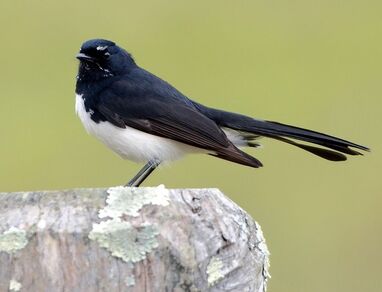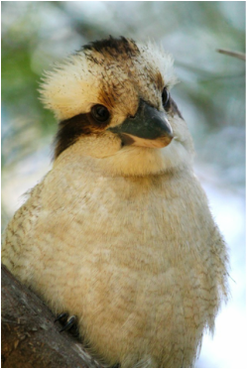|
BIRDS
What you can do to help an injured bird
A common cause of injuries to birds are collisions with windows or motor vehicles and cat attacks. If you find a bird on the ground and it doesn't fly away when approached, there is something wrong with it. If possible, approach the bird slowly, then, if confident carefully cover it with a towel and pick up. Handle birds gently as you do not want to cause it pain or further injury. Birds do not realise you are trying to help and may bite. |
Keep its head covered as this reduces stress, and helps prevent biting. If you do not feel confident handling a bird, you can cover it with a laundry basket or box until help arrives. Removing visual stimulus can help keep the bird calm. If the bird is in a box, placing a thick towel on the bottom will help keep feathers clean and stop the bird sliding around. The box should be just large enough for the bird to fit in comfortably, stand upright and turn around. Make sure the lid is securely fastened. Do not give the bird food or water, and place the box in a warm, dark and quiet location awat from pets and noisy children, and call a wildlife carer. Rescue South Coast.
If you find a chick on the ground, it may be injured, sick, or exhausted. Some birds such as magpies and tawny frogmouths commonly leave the nest and naturally spend days on the ground before flying. If you do find a chick on the ground, please place it in a box as described above and call Wildlife Rescue South Coast for assessment advice. In many cases, it can be reunited with its parents - the best outcome for everyone!
Try to record the exact location where the bird was found as many are territorial and need to be released close to where they were found.
If you find a chick on the ground, it may be injured, sick, or exhausted. Some birds such as magpies and tawny frogmouths commonly leave the nest and naturally spend days on the ground before flying. If you do find a chick on the ground, please place it in a box as described above and call Wildlife Rescue South Coast for assessment advice. In many cases, it can be reunited with its parents - the best outcome for everyone!
Try to record the exact location where the bird was found as many are territorial and need to be released close to where they were found.
|
Other Information
The following information provides some general advice and guidance about what to do if you should find an injured, sick or orphaned bird that appears to be in need of help:
|






